
Cosmo Jarvis
Meet Cosmo Jarvis, soon-to-be-household name, even if he doesn’t know it (or believe it) yet himself.
Considering all the work he’s put in over the years, it isn’t surprising that viewers are starting to take notice. From Calm with Horses in 2019 which earned Jarvis a British Independent Film Award nomination and now to the critically acclaimed and widely popular Shōgun, his breadth of work is shining a spotlight right on him.
Fiercely serious with an intensity that keeps you captive right from the beginning, Jarvis commands every scene of Shōgun he’s in. Adapted from James Clavell’s 1975 novel of the same name, the series follows John Blackthorne (Jarvis) as he navigates his way through bloody civil turmoil in Feudal Japan. Interwoven between the sweeping landscapes, gorgeous set design, visceral gore (that even puts some horror movies to shame), and political subterfuge, at Shōgun’s very core, are its characters. With Blackthorne being the focal point, we’re drawn into how his actions affect the people he touches, causing ripples; whether that’s the crew of the Erasmus whom he’s desperately trying to free, his relationship with translator Mariko (played by Anna Sawai), or his unsteady alliance with Yoshii Toranaga (Hiroyuki Sanada) he finds himself entrenched in a world so unlike his own and we, as the audience, are left unsure if he will be able to fully adapt to survive.
As the series progresses, we’re able to see that Blackthorne is much more than the rough-around-the-edges and gritty ‘pilot’ we meet in episode one. That’s due to Javis’ ability to bring us right down to ground level with him. We walk in Blackthorne’s shoes, we share in his experiences, his heartache, and his sometimes blinding loyalty. Through John’s eyes, we’re shown the rich tapestry that is Japanese culture and Jarvis does a phenomenal job of keeping us engaged in the adventure.
In conversation with 1883 Magazine, Cosmo Jarvis discusses John Blackthorne, what audiences can expect from the finale of Shōgun, his upcoming project Warfare with Ray Mendoza’s and Alex Garland, and more.
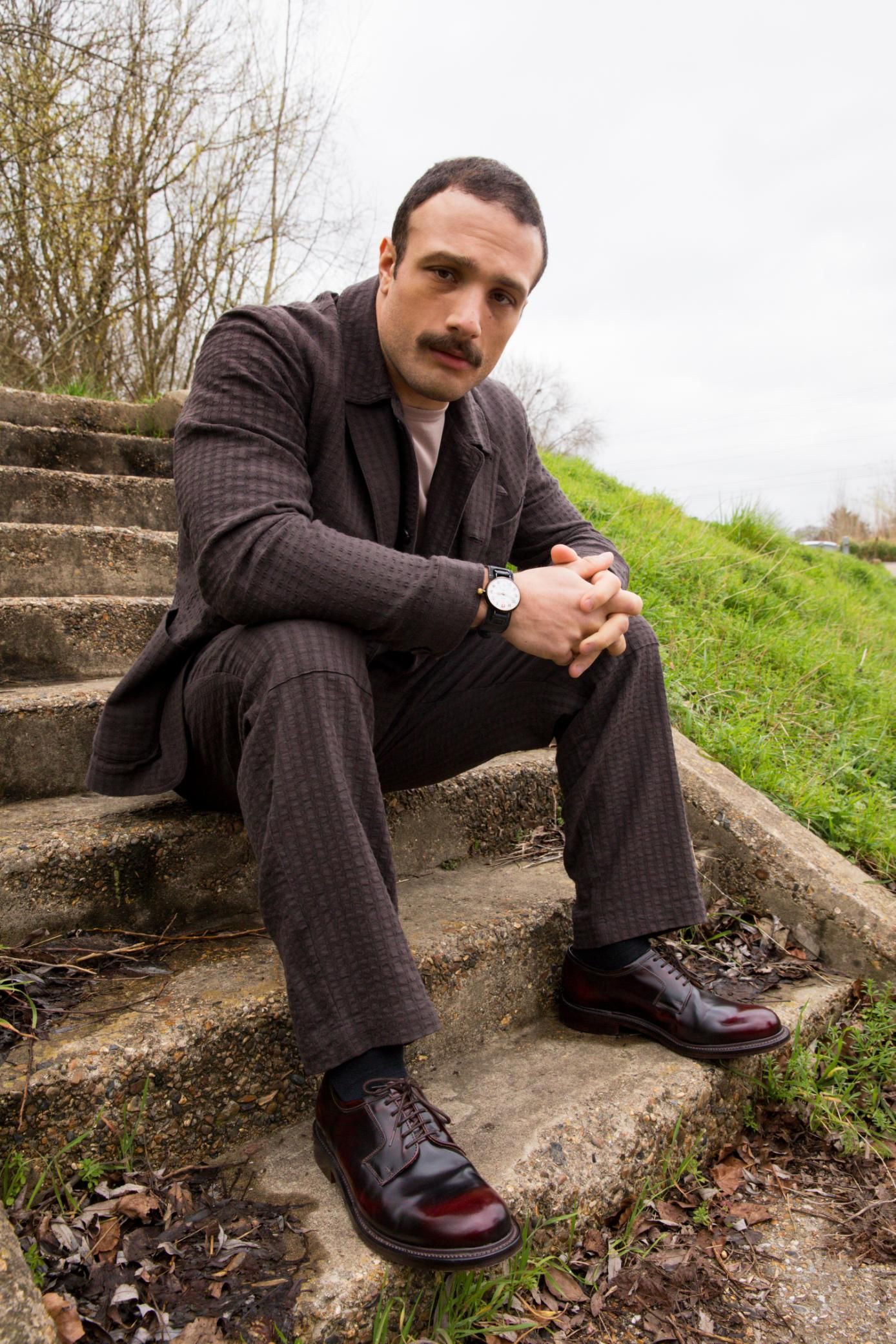
One of the things I love about John is his sense of loyalty and not wanting to leave a man behind, friend or foe. Or, whether it’s the captain of the Erasmus, the crew, Rodrigues or Toranaga. What do you think that loyalty is rooted in?
I think that he has at his core a very simple humanitarian attitude which is easily mistaken for loyalty. In the book by James Clavell, it made it clear that John values life and is shocked by the disregard for it which the Japanese seem to him to demonstrate. I think that if he comes across an opportunity to save someone in peril who is not a sworn enemy or immediate threat to him, he would because it’s the Christian and generally decent thing to do. I think the notion of John being loyal is a tricky one because loyalty seems to me as though it must be voluntarily embodied by an individual, which is not the case with John. The man is foremost a prisoner who is offered no other option but to exist within the parameters of his imprisonment, so this is not loyalty in the purest sense of the word. Does his sense of human kinship with other lives around him largely supersede any fickle matters of status, politics and circumstance? Sure.
Because language is such a barrier in the first few episodes, there’s a certain physicality/body language John uses as a means of communication before Mariko is there to translate. Can you talk about what it was like to get into that headspace? Were you able to pick up any of the language as time went on?
In terms of physicality, it was merely a case of attempting to convey the sentiment of the dialogue which the speaker himself knew would be lost on the person he was speaking to. It was a case of physically filling in the blanks or emphasising them with physicality to increase the chances of the receiving party understanding the desired sentiment. It was not a conscious thing. Sometimes, the dialogue had been written to be spoken by John but this presented a logical question as to why a man who knew he wouldn’t be understood in this circumstance, would bother speaking at all. On the one hand, he has to speak so the story can progress and so the character’s motivations can be understood, on the other hand, using rudimentary hand signals in silence might actually be a more efficient communication method.
Yes, I picked up a few bits of Japanese, but not much. Sometimes Hiro might be talking, and I’d recognise a word here or there. I’ve forgotten most of it now, unfortunately.
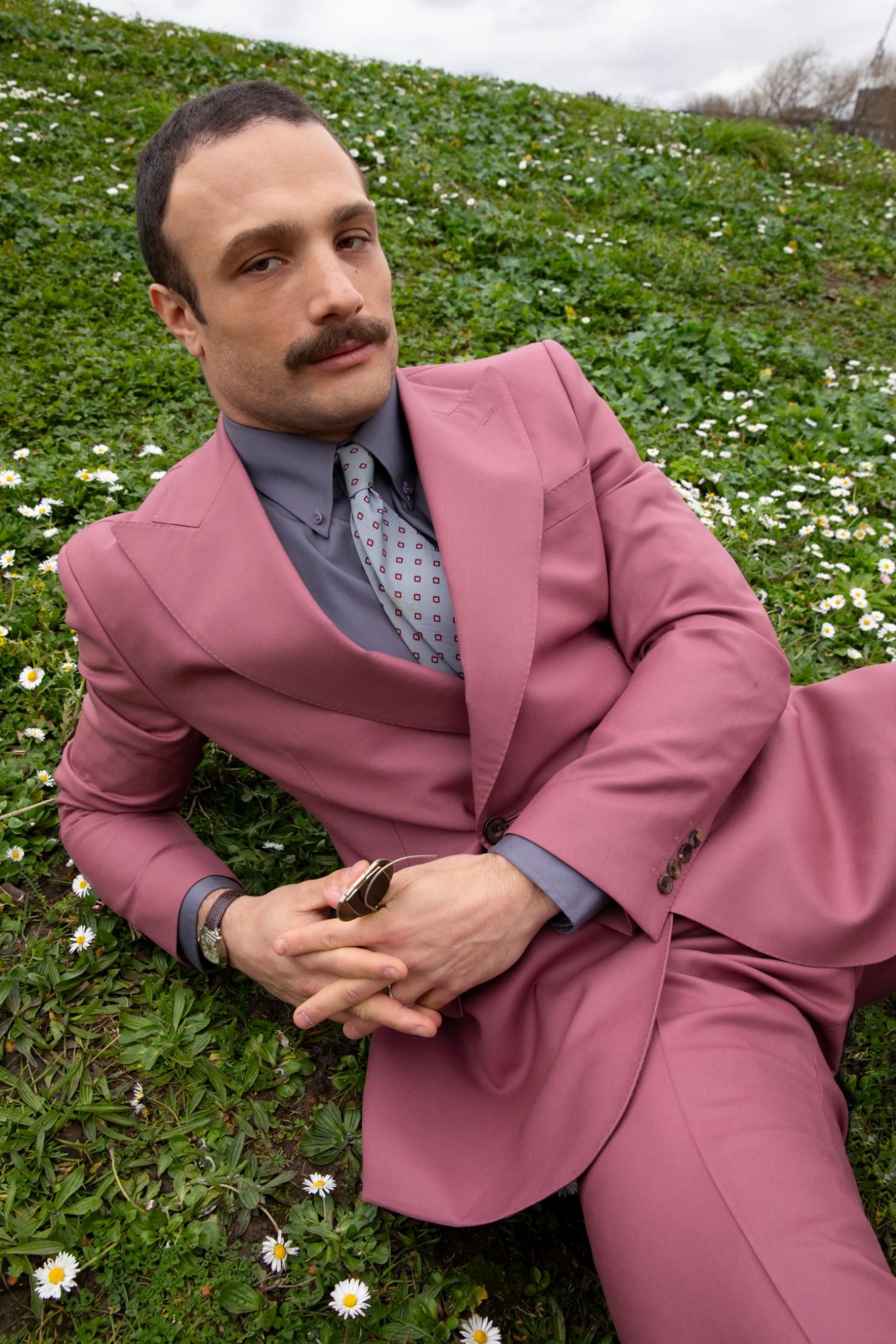
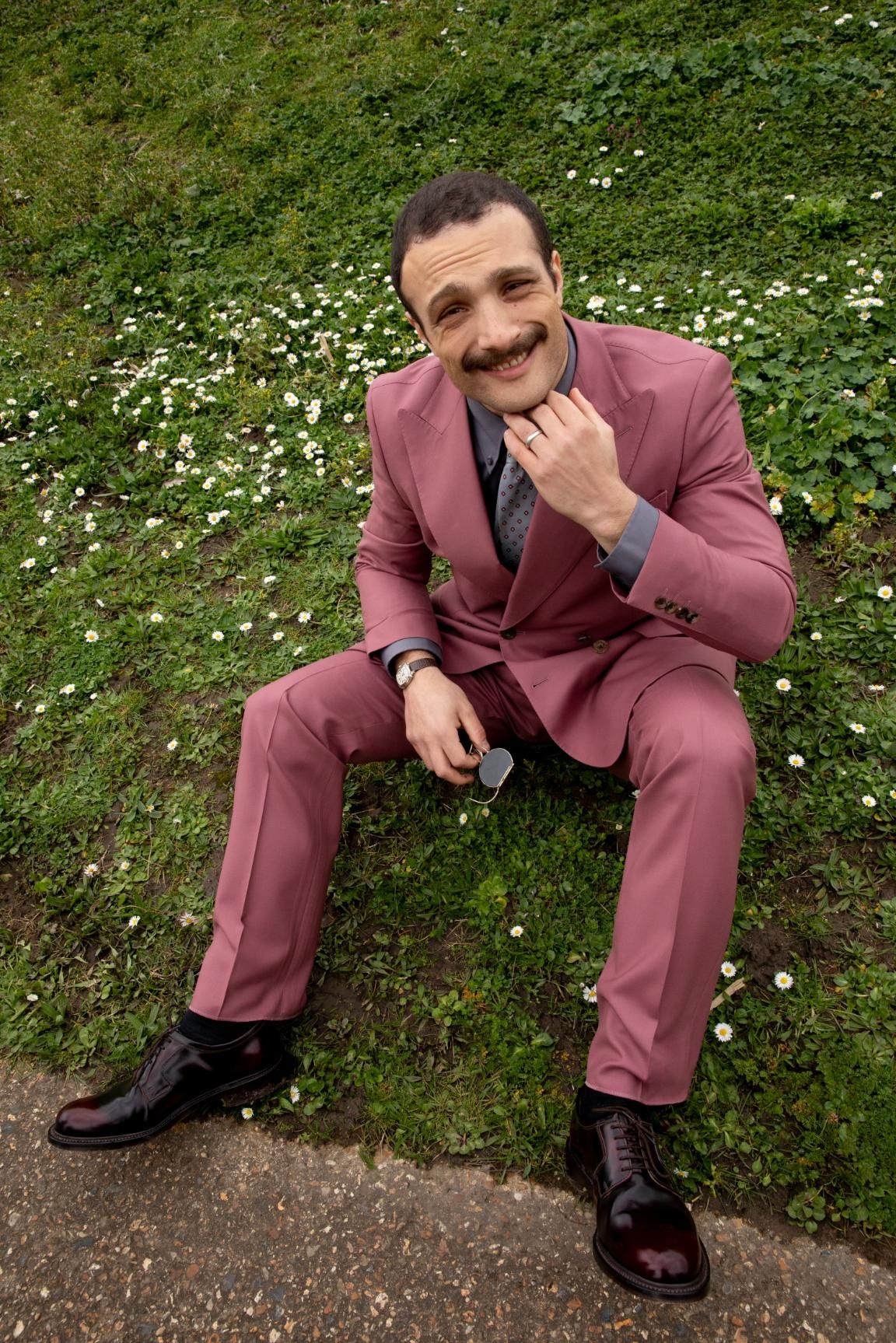
You said in an interview you did with DSCENE that you’ve never seen the 1980s TV adaptation. Was that a conscious choice as an actor? Were you concerned about it influencing your performance?
I just thought it was irrelevant to the task at hand. It was plain to me that this new adaptation was being built from the ground up in an era where certain changes to the source material and tone were inevitable and that if any further information was required beyond the teleplay, the most unadulterated and therefore useful source of this was going to be Clavell’s original book.
You’ve said you pulled from your father who was a merchant seaman. How much of him did you insert into John Blackthorne? Did you pull inspiration from other sources?
Yes, my father was an influence in shaping Blackthorne’s character. There is a confidence in one’s experience and ability to navigate problems that arise at sea. A sort of attitude that transpires in an environment where decisions must me made quickly, efficiently, and safely, and sometimes result in solutions that are totally improvised. He also speaks clearly and with purpose. I suppose the other source was just a certain attitude that some of that generation of Englishmen seem to have – Clavell included. Granted, it’s not true to the characteristics of the men of 1600 because that was not a feasible option given the script being a work of historical fiction, but that spirit felt right for Blackthorne for a number of reasons including his plain speaking, his faith in reasoning and logic, his frustration at the illogical protocol and his gumption and assuredness that with hard work and dedication, his skill and experience could get him through.
How easy is it for you to find common threads in the characters you portray? What draws you to them?
Each character is quite different. As crass as it sounds and may actually be, I am drawn to characters which seem to be worth playing to me. It’s hard to expand on, really. Perhaps characters which are specific, or which have promise to be interpreted with some specificity. I never really know until I read them.
Shōgun has garnered a massive audience since its premiere in February. What do you think is the main reason for the show’s continued success?
It’s really not for me to speculate, but I think that perhaps people enjoy escapism, particularly escapism on the kind of scale and in the sort of rich environment that Shōgun offers. I might also guess that audiences enjoy some or many of the vast array of endearing characters that the show offers. Japan is a formidable contributor to pop culture, among other things, so perhaps that has something to do with it. Also, Hiroyuki Sanada is somewhat of a legend.
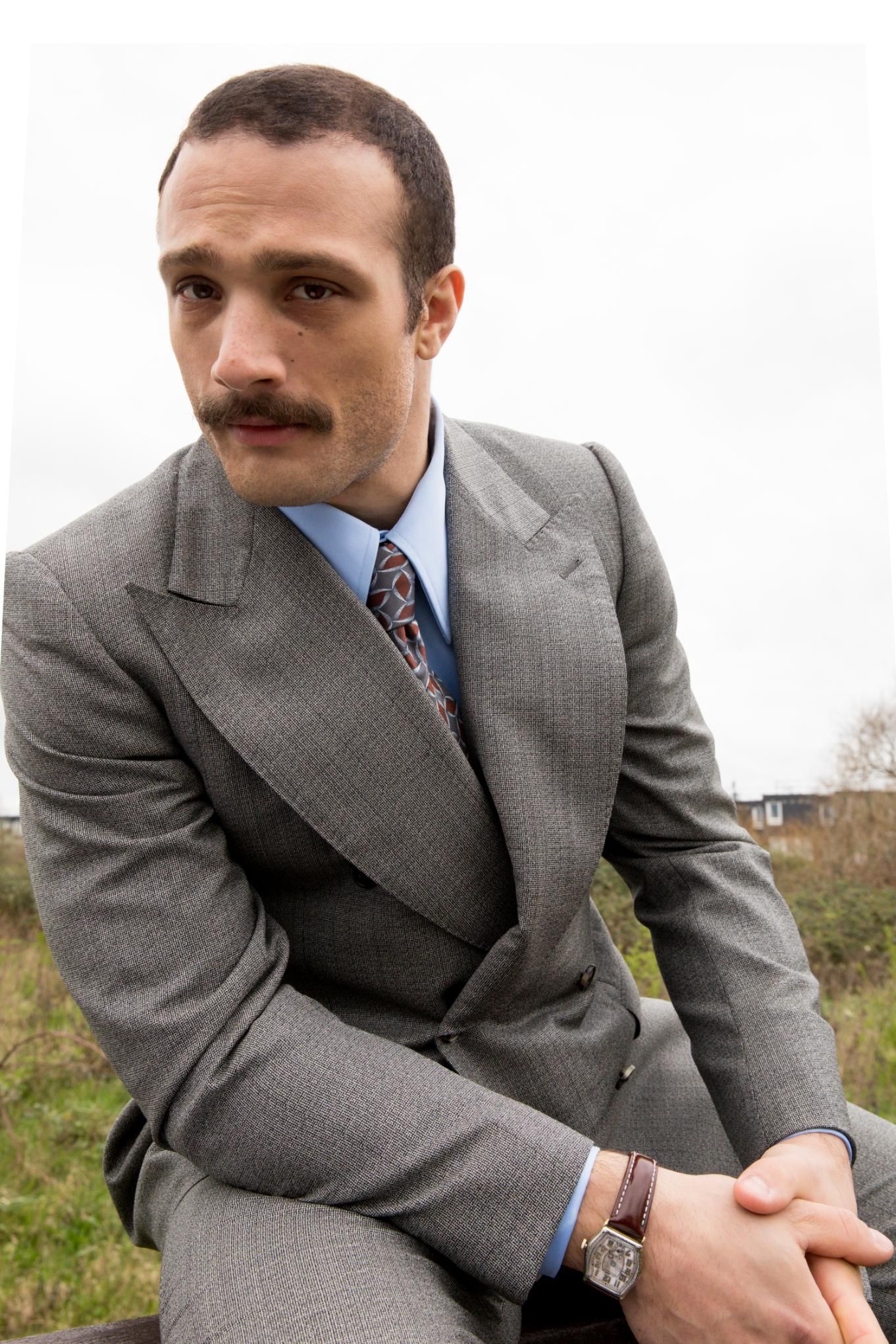
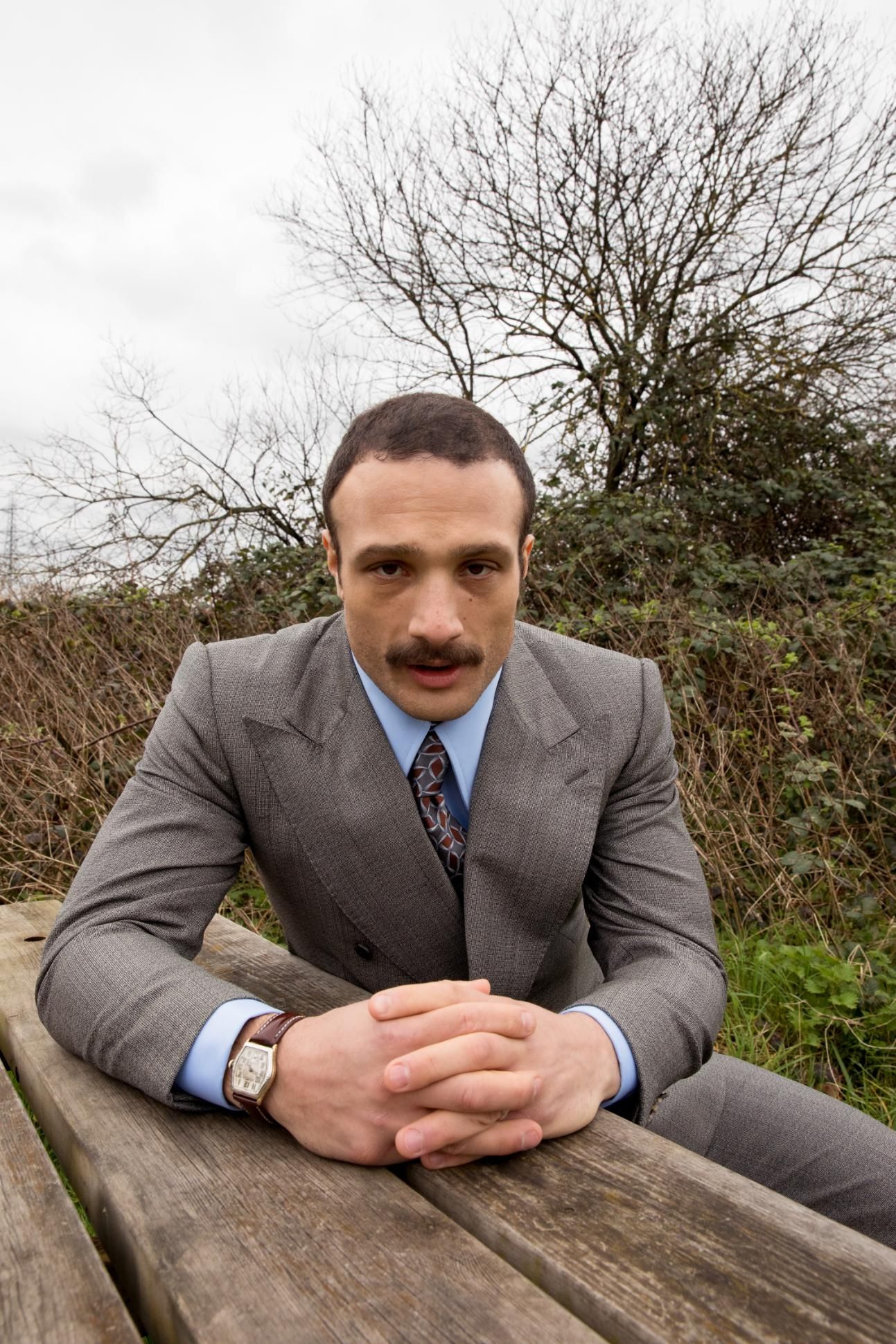
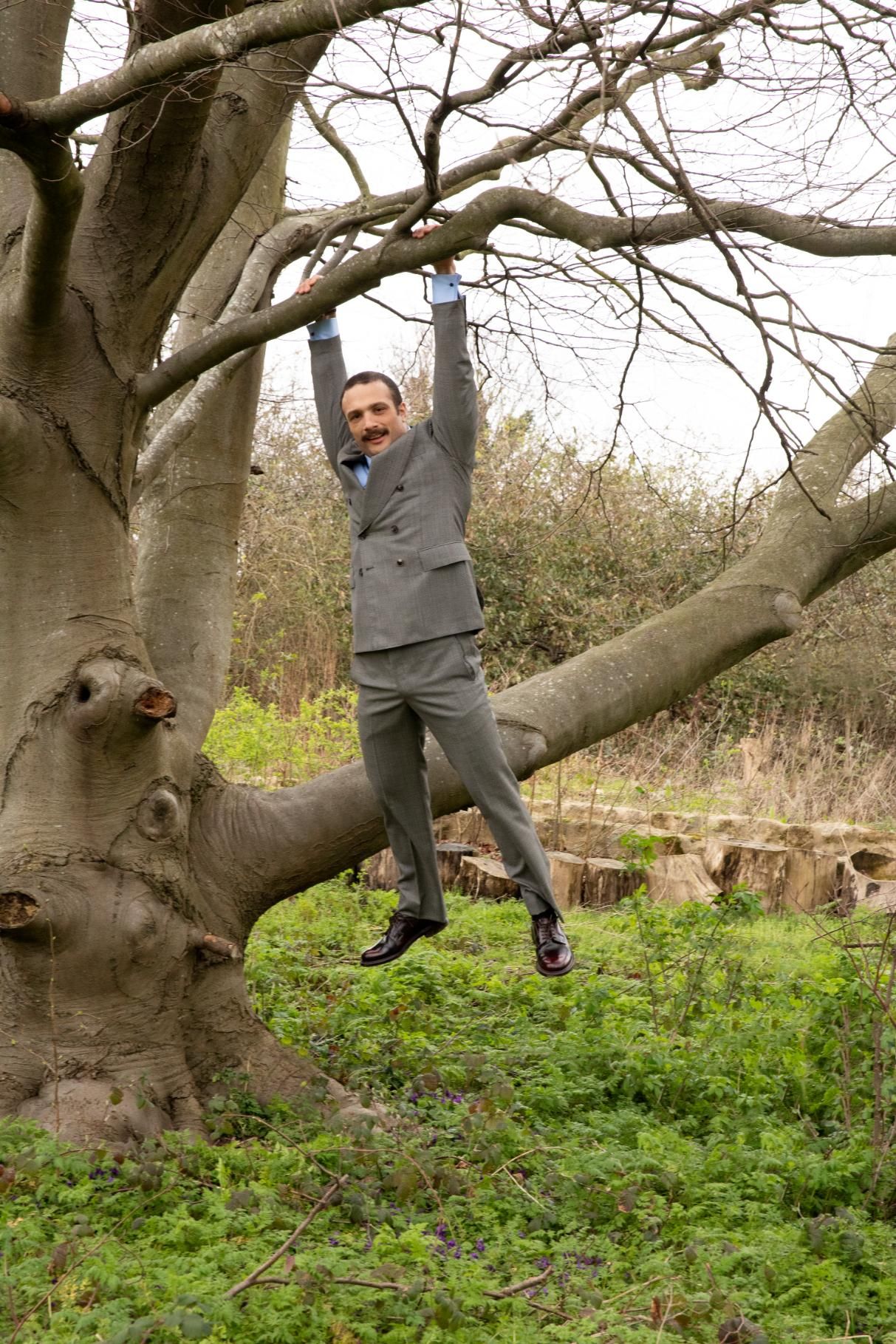
You’ve recently been cast in Ray Mendoza’s and Alex Garland’s Warfare, I know you can’t say too much, but can you talk about what attracted you to the project and what your audition process was like?
I was attracted to it for various reasons, I don’t want to say anything about it before I have commenced and completed my work on it other than I have sincere faith in the project’s approach, wider purpose and all those involved. I think it’s going to be unique.
You’ve worked with some legendary actors; Hiroyuki Sanada, Robert DeNiro, and Guy Pearce, how has working with them shaped or impressed upon you as an actor?
It was certainly a privilege to be able to work with those men. Of course, It’s always interesting witnessing how people with vast experience work, but ultimately it doesn’t change anything for me in a significant way once the scene commences. They were all just lovely dudes. I have had equally impactful experiences working with far lesser-known actors.
On the shoot with the magazine, you brought a set of watches from the 1920s and unique sunglasses, what drew you to those pieces in particular?
I just like older stuff!
When you’re not acting, what interests you? How do you spend your time off-set?
Considering future employment prospects. I like trees. We should definitely plant more of them. We are their guests, after all. I go walking with my wife. I enjoy curry. Ponder God and the universe and that sort of thing.
You spent 11 months filming in Canada, was that your first time in the country? Can you talk about your experience filming the Vancouver wilderness?
I had been to the Toronto Film Festival before with a film I worked on called Calm With Horses. I didn’t see much of anything though, that time. The natural parts of Vancouver were beautiful. Some amazing, ancient trees in ancient forests and moss and ferns that grow everywhere. The biodiversity was astounding. It was interesting to learn of the extent of the Canadian film industry. The Canadian crew who worked on Shōgun were some of the most hard-working and exceptionally skilled people I’ve ever worked alongside, they were also really great folks, too.
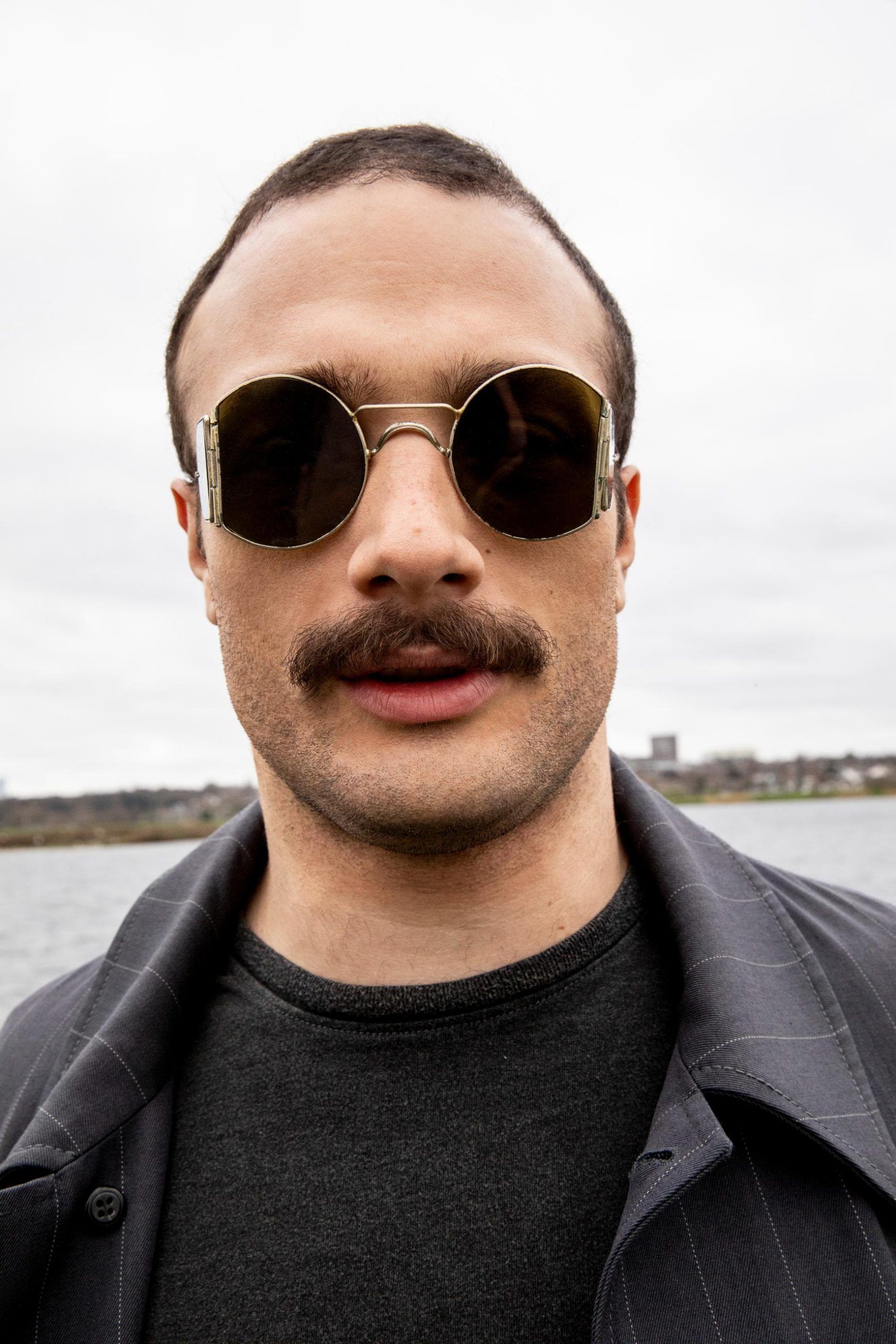
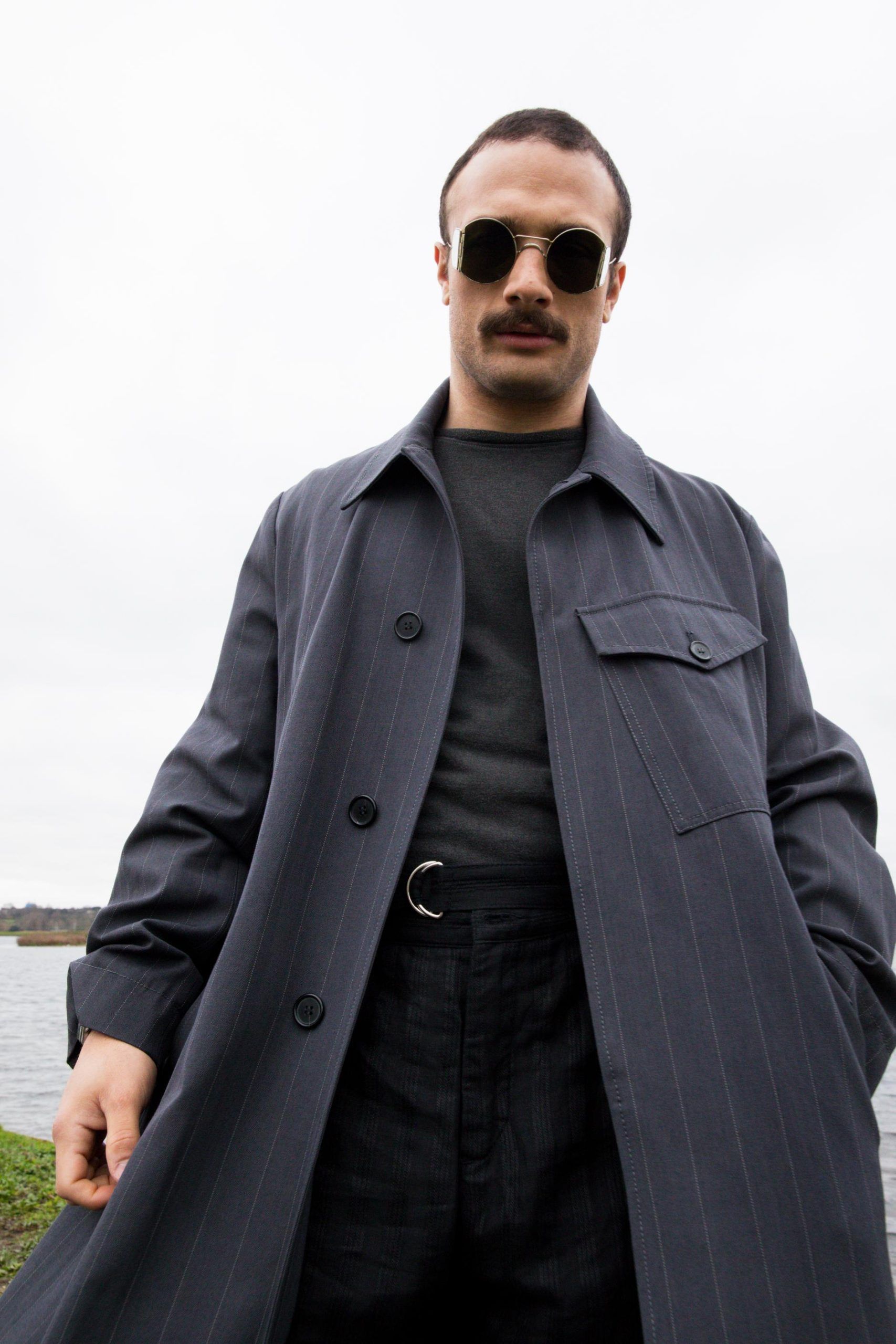
Circling back to Shōgun, we’re a few steps closer to the finale and John is more divided than ever between his loyalty to himself, his men, Mariko and Toranaga. When he meets Salamon in The Abyss of Life all of his frustration comes to a head. Why do you think that was the straw that finally made him snap?
At that stage, I think John’s loyalty to Toranaga or Mariko is perfectly clear to him. John’s numerous attempts to be loyal and useful to Toranaga have ended with him being dismissed from his non-service due to Toranaga’s suicidal surrender. Mariko has her own plans that do not involve John so John’s men were all that was left for him. Salamon rightly confronts John with an uncomfortable truth. John here is called out for being what he always ultimately was, a very capable, very adventurous opportunist who wishes for the same reputation and respect that great sailors like Sir Francis Drake had received before him. I think the realisation that even his own men are now wise to and angered by his unrelenting ambitions really just plain ruins his already fairly terrible day. It is also for these reasons that Blackthorne seeks a new ally in Yabushige.
Another thing I love is how Mariko translates for John. She either translates literally, omits entire chunks of conversation or rephrases slightly to keep the peace. As the show progresses, we see John pick up the Japanese. Do you think he had a suspicion of Mariko not being completely honest with her translation?
I don’t think it matters what John thinks, he is just trying to make his own way through Japan. Mariko is useful to him in in certain ways, but I don’t think that at any point he would rely on her more than he relies on himself and for this reason I don’t think he has much reason to especially consider the extent of Markio’s dishonest translations. The show makes it clear that every character has their own agenda and that every character is also aware of this fact.
There are moments of levity throughout Shōgun. One of my favourites is early on in episode 2, Servants of Two Masters, where Mariko encourages John to bathe, and he’s baffled at the notion of bathing more than twice a week. What were your thoughts when you read that in the script?
It was very important for me because in the book the lack of cleanliness in England being compared to the hygiene level John experiences in Japan was a frequent comparison, so it was good that our script included it. It seems comparable to the fact that not too long ago, there was a time when patients might have asked doctors ‘is there anything wrong with me smoking?’ And the doctors would have said ‘nah, you’re fine! Smoke more!’. It’s just an accurate representation of a time when people believed you could get rid of an illness by bleeding it out. I guess the humour comes from it being a belief which it totally sincere on Blackthorne’s part.
When you look back over your time filming Shōgun, what were your favourite scenes to shoot and why?
That’s an impossible question. It is all a blur now. I have almost no memory of it but I really loved the crew. They were the best part of it for me. Working alongside them, It was impossible not to be compelled to strive for the best. There was a huge amount of dedication on that set and it was a privilege to have been afforded the opportunity to contribute to it.
With the finale here, what can audiences expect from the last two episodes of the series?
Without spoiling everything I can only say that I hope people will find the resolution to be satisfactory and that they will find some sort of closure to this complex tale and its many characters. I think it delivers in this regard.
How has the experience of filming Shōgun changed you?
Well, I guess it was a really good piece of extended experience. At the time, the scale of the project was something quite new to me. It was great to be a part of something like that. I’m sure I learned something specific, though I’m not sure what it is yet. Whatever it is, it will probably manifest itself somehow in my future work.
And lastly, what is something you’d like to try as an actor that you’ve never tried before?
I think every role should be a good opportunity to try and do something new. I won’t know what that is until I try it, I suppose.
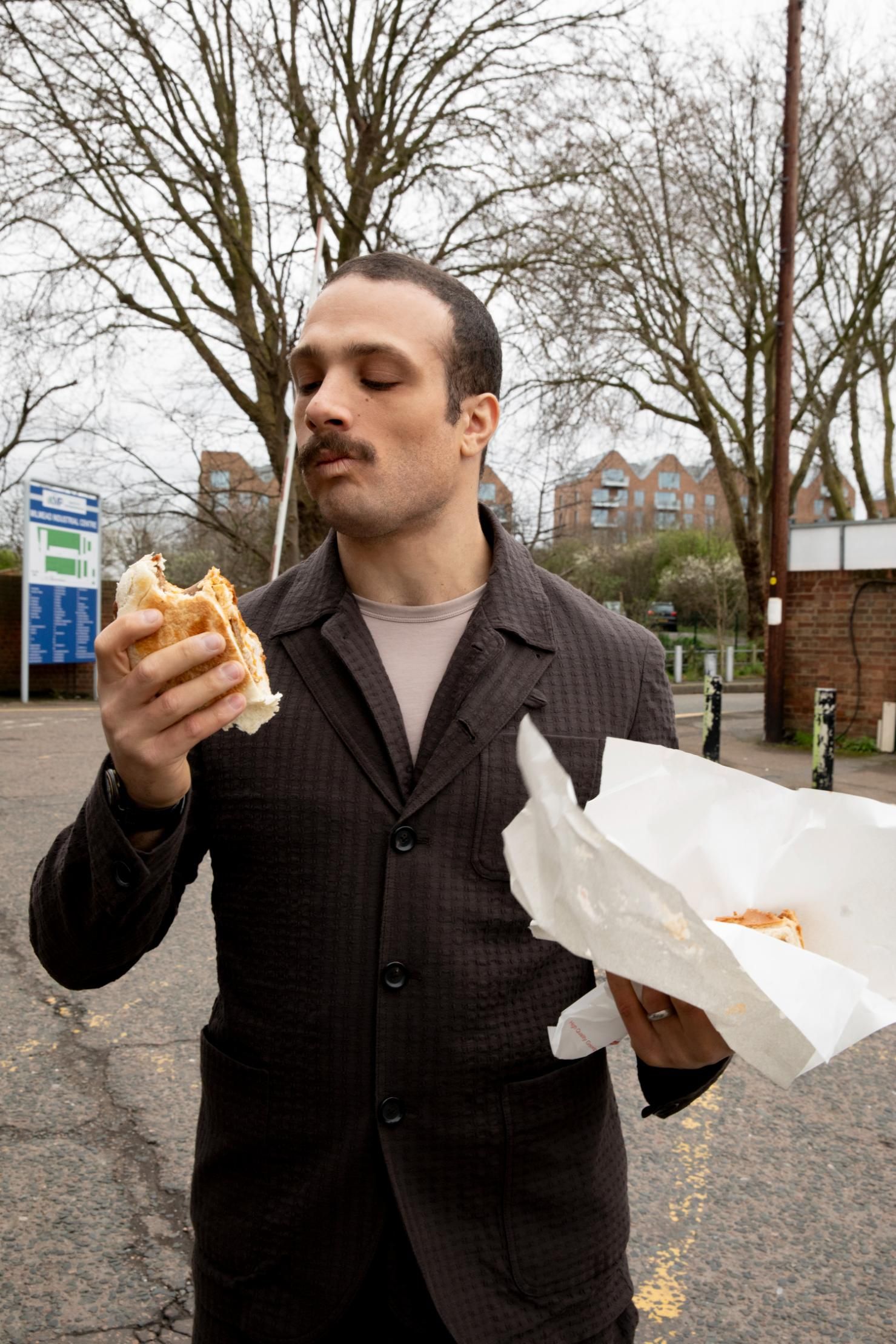

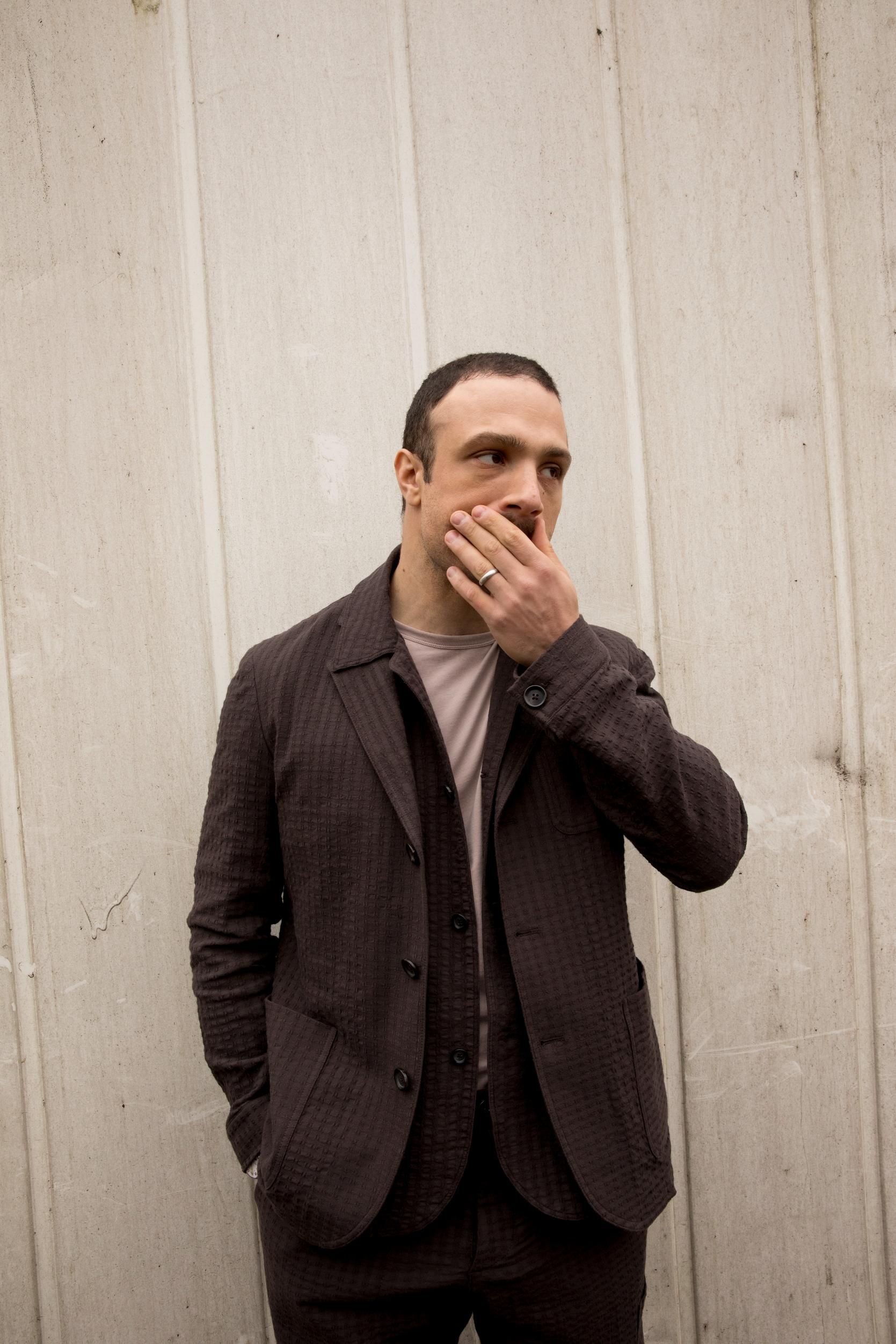
Shōgun is streaming now on Disney+.
Interview Dana Reboe
Photography Jemima Marriott
Styling Mark Anthony Bradley
Grooming Justine Jenkins





